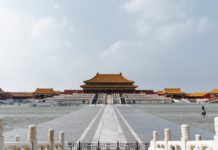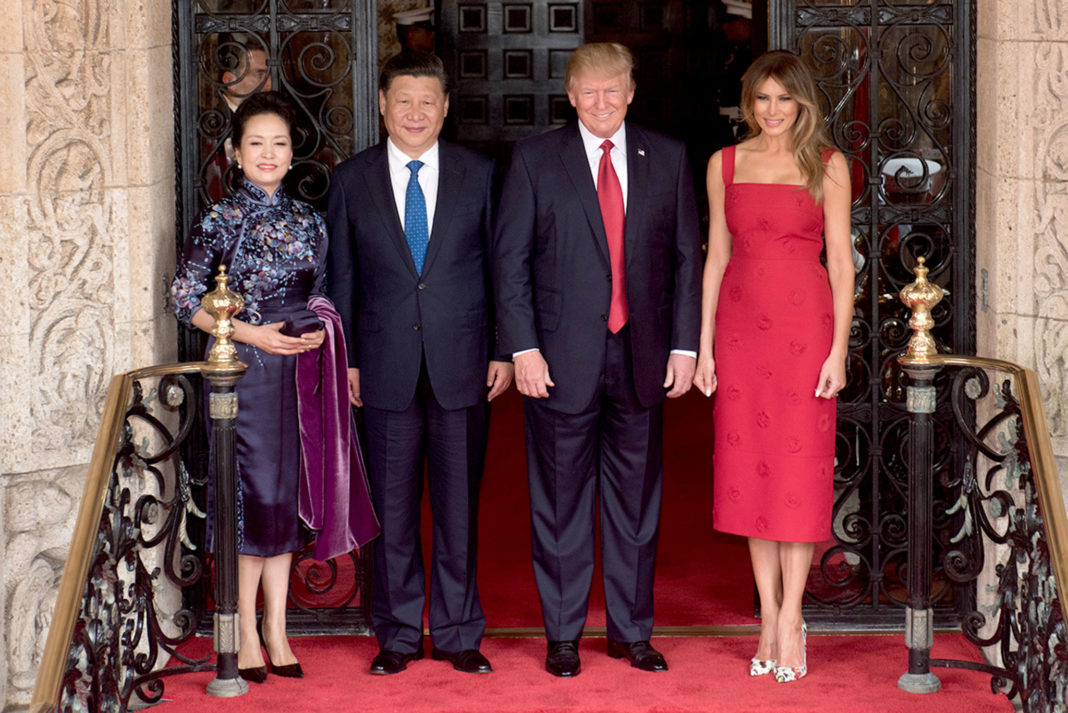Is conflict between the United States and China inevitable? Does the US’s relative decline and China’s meteoric ascent put them on an inevitable path to conflict? This entry provides a brief account of some of the dominant views found today in academia, intellectual circles, literature, and the media. This may seem like a futile exercise, apparently void of any practical application, yet examining different perspectives and drawing potential scenarios may be the first step in preparing for and shaping that which is to come.
The realist perspective
The US and China compete for power in an anarchical arena where states, in the pursuit of self-interest and caught in the security dilemma, are destined to clash against one another like balls on a pool table. Sooner or later, as US relative power declines and China’s ascendancy continues, the two will inevitably come into conflict. This inevitability is supported by historic evidence, indeed safe for a few exceptions great power transition has historically been the result of violent conflict.
The geographic perspective
The US is shielded by two vast oceans and oversees a continent where its two main neighbours are much weaker. It is, so to speak, a City on a Hill. China, on the other hand, is surrounded by many other nations including Japan – a regional balancer and a US ally -, India and Russia. China is known, after all, as the Middle Kingdom. Thus, the US will continue to project power in the Atlantic and Pacific theatres with China as the only potential challenger in the latter, yet China’s control of its own backyard may not come cheaply. Proxy regional conflict may arise, but a full great power challenge is less likely.
The demographics perspective
The US is a much less populous country (340 million people) when compared to China (1.1 billion). However, UN population projections suggest that US population will continue to grow at a faster pace than China’s, helping sustain domestic productivity, economic growth, and a steady replacement of retiring people with younger, hardworking individuals. This will happen against a background of a much higher wealth per capita in the US compared to China. In other words, China risks getting old before it gets too powerful, and this can either act as a restraint or as a catalyst for short-term violent competition.
The MAD perspective
Both the US and China are nuclear powers and although the US has over twenty times more nuclear warheads than China (over 6100 vs 290), the latter’s mere possession of these deadly weapons strengthens strategic balance and calls for a reciprocal exercise of restraint. This does not make conflict between the two nations impossible, but it makes it less probable. There is however one small but important difference: whereas China has a no first use policy in place, the US retains a first use option in case of attack, including in case of a non-nuclear attack.
The liberal perspective
The US and China are too interconnected and interdependent to risk it all by going to war with each other. The levels of bilateral trade, investment, mutual currency holdings, and even cultural and educational exchanges are so great that no rational leader or government would downplay their importance in any potential conflict scenario. This, at least in theory, makes conflict between the two nations less likely. However, the years preceding the outbreak of WWI also saw unprecedented levels of international trade and globalisation, yet this increased interconnectivity did little to prevent conflict.
The institutionalist perspective
Liberal institutionalists believe that institutions and multilateralism play a critical role in fostering peace, cooperation, stability and, in the extreme, integration. The United Nations is the quintessential global institution but others include the WTO or the ILO, and at a regional level, the EU, the African Union or ASEAN. These institutions help diffuse tensions through political deliberation, concerted action and cooperation, making conflict less likely. The US and China are both permanent members of the UN Security Council, yet so was the Soviet Union during the Cold War when tensions with the US were at its highest.
The ideological perspective
Many claim that ideology died with the twentieth century and that China abandoned Socialism when Deng Xiaoping led the country to state capitalism. However, the US embraces and still leads a liberal international order whereas China’s Communist Party has no intention to abandon one-party rule and embrace liberal reform. In recent years, the US has tempered its ambition to spread democracy and human rights globally, but the pendulum may swing back in the not-so-distant future, adding pressure on China. The latter’s policy of non-intervention reduces the likelihood of an ideological clash with the US, yet this may be offset by a growingly assertive and self-confident China.
The cultural perspective
In his famous book “The Clash of Civilisations”, Samuel Huntington draws a picture in which the world’s civilisations are headed towards conflict, whether by design or accident, driven by competing and antagonistic values and organising principles. The US represents Western values of individual freedom, monotheistic beliefs and a linear understanding of time. In contrast, China represents Confucian values of hierarchy, discipline and a circular conception of time. This can lead to different understandings of competition, balance of power, equilibrium, order, collaboration or cooperation, thus making compromise and peace more, not less, difficult, particularly in times of heightened tensions.
The ‘human’ perspective
States are not living entities but the sum of individuals who experience unconscious instincts and desires. Eros and Tanatos, or the love instinct and the death instinct, are two sides of the same coin caught in perpetual dialectic. When Einstein and Freud exchanged letters, the latter wrote that war is the cruel practical reflection of the triumph of Tanatos over Eros. Death and destruction don’t always triumph over love, but they are more likely to unleash in situations of disequilibrium. American and Chinese people and leaders are not immune to these unconscious forces. Early realists more or less supported this claim when they saw conflict as inevitable because of man’s selfishness and violent nature.
The agency perspective
Appearing in the early nineties, constructivism defends that anarchy, understood as the lack of an overarching structure and power in the international arena, is what states make of it. This is because, as agents, states are shaped both by the structure in which they operate and by identities which inform their interests and actions, and that this, in turn, influences the nature of the structure in which they find themselves in. States therefore are not necessarily destined to clash against each other but form a society with agency characteristics.




























